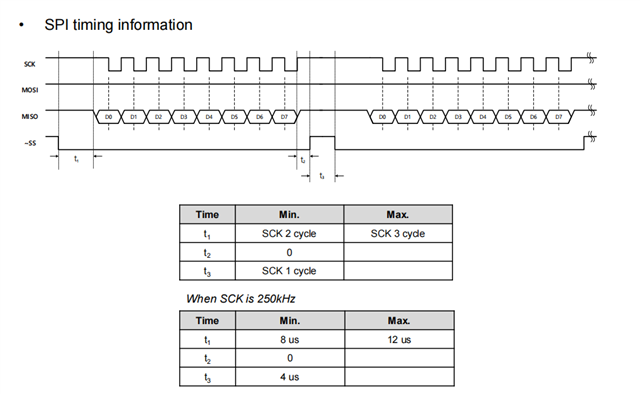Other Parts Discussed in Thread: CC1310
Hello everyone.
I am working with a SPI slave device.
Which requires the host to send an 8 byte command and the slave responds with an IRQ for the host to issue two bytes of mode change (host read or host write).
When sending the two mode change bytes, 8 bytes of information are expected to be received.
Exploring the Simplelink CC13XX SPI.h examples, I only notice that the TX and RX buffer size are the same size.
Does anyone know how to send 2 bytes and receive 8 bytes?
I have tried this idea, but it doesn't work for me.
transaction.count = 2;
transaction.txBuf = &data;
transaction.count = 8;
transaction.rxBuf = &RXdata;
spiTransferOk = SPI_transfer(RED2_Spi, &transaction);
Regards.






